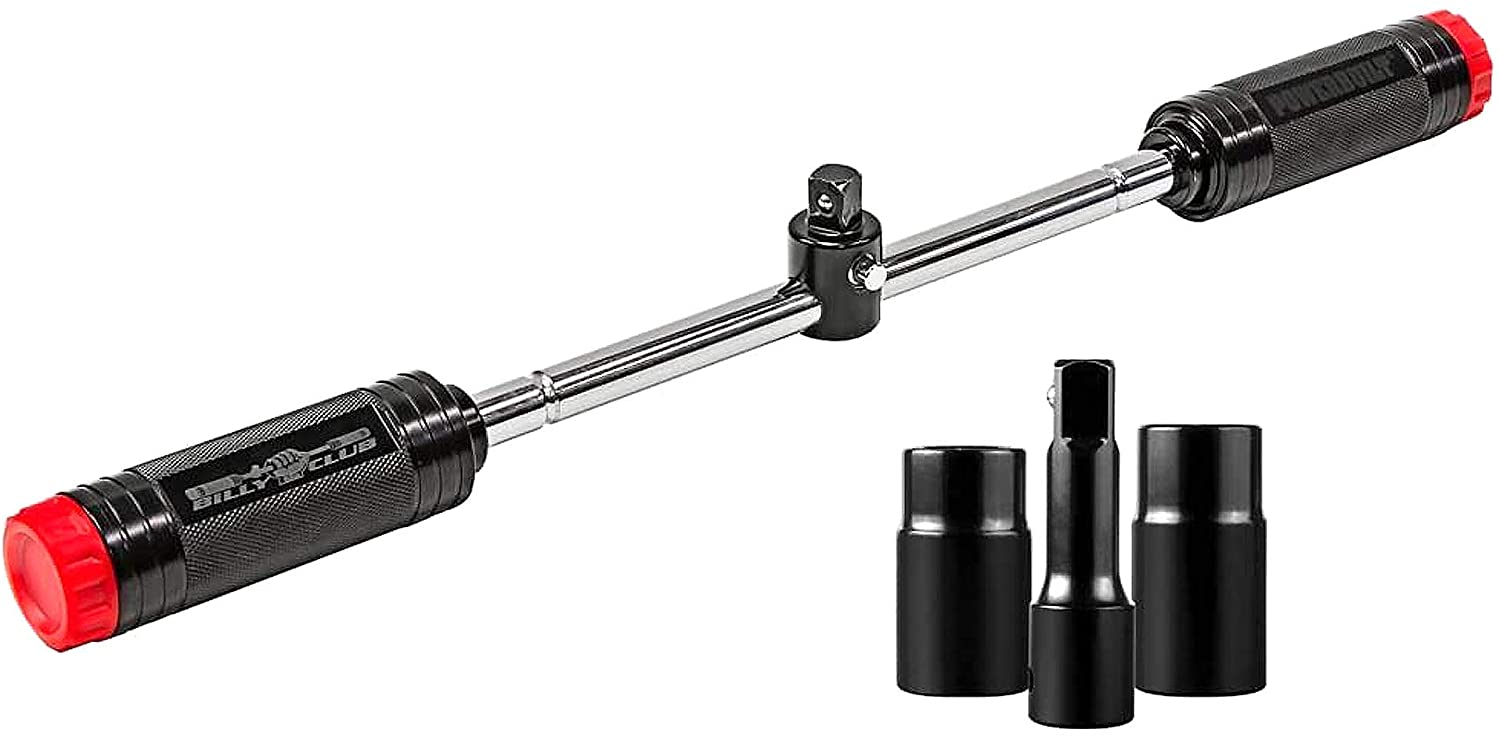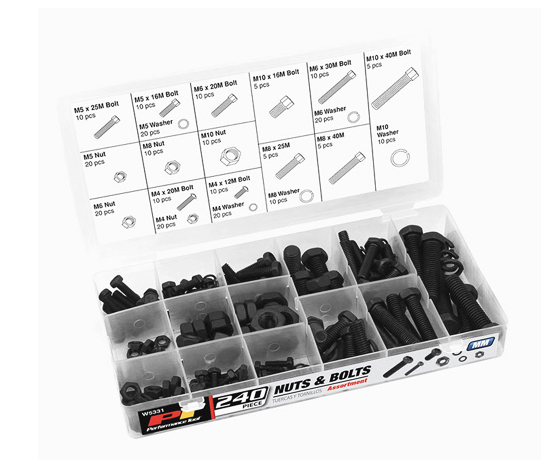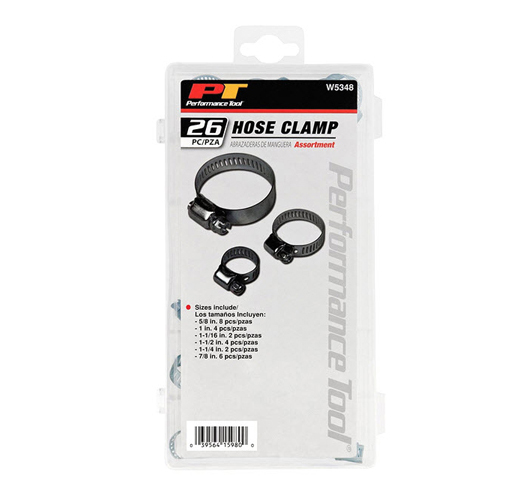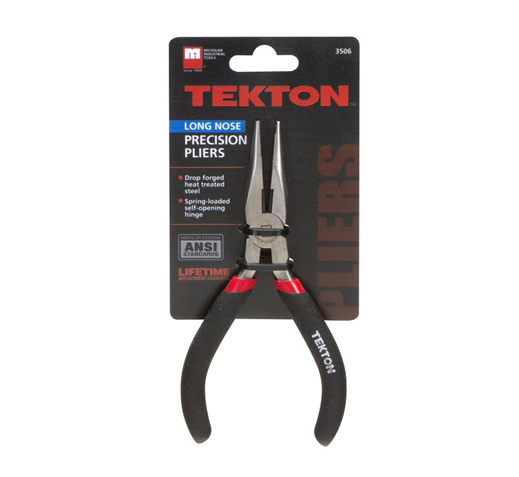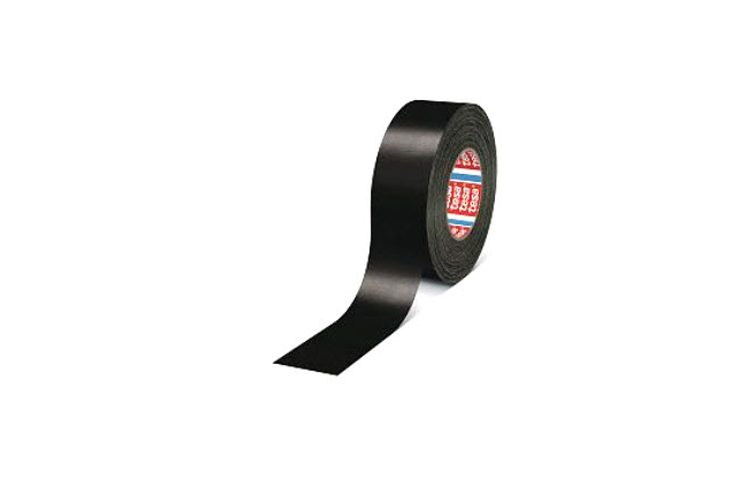Jeep Wrangler JK JKU Rubicon 2007-2018 Wrangler JL and Jeep Gladiator
Basic Trail Kit for Trailside Repairs
Beginner's tool kit essentials for the soon-to-be lone Jeeper who doesn't know where to start.
What is the best basic trail kit for a Wrangler? What tools do you need to put together? My minimalist tool kit is lightweight, affordable, and well organized, and it helps me to deal with most mechanical or electrical problems (>90%).
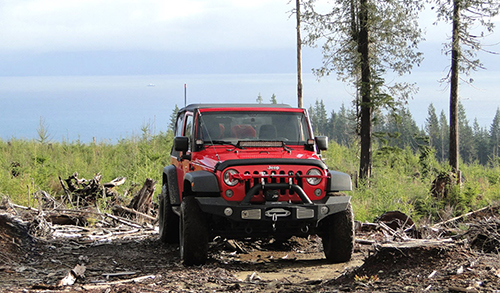
Prepare your first expedition with your Jeep in the extreme remote wilderness. Below are the Ttools to take packbefore you start your journey. Start with this low-cost tool kit for solo backcountry exploration.
Expedition Tool Repair Kit Wrangler JK
When relying on the “Buddy System” for help is not an option.
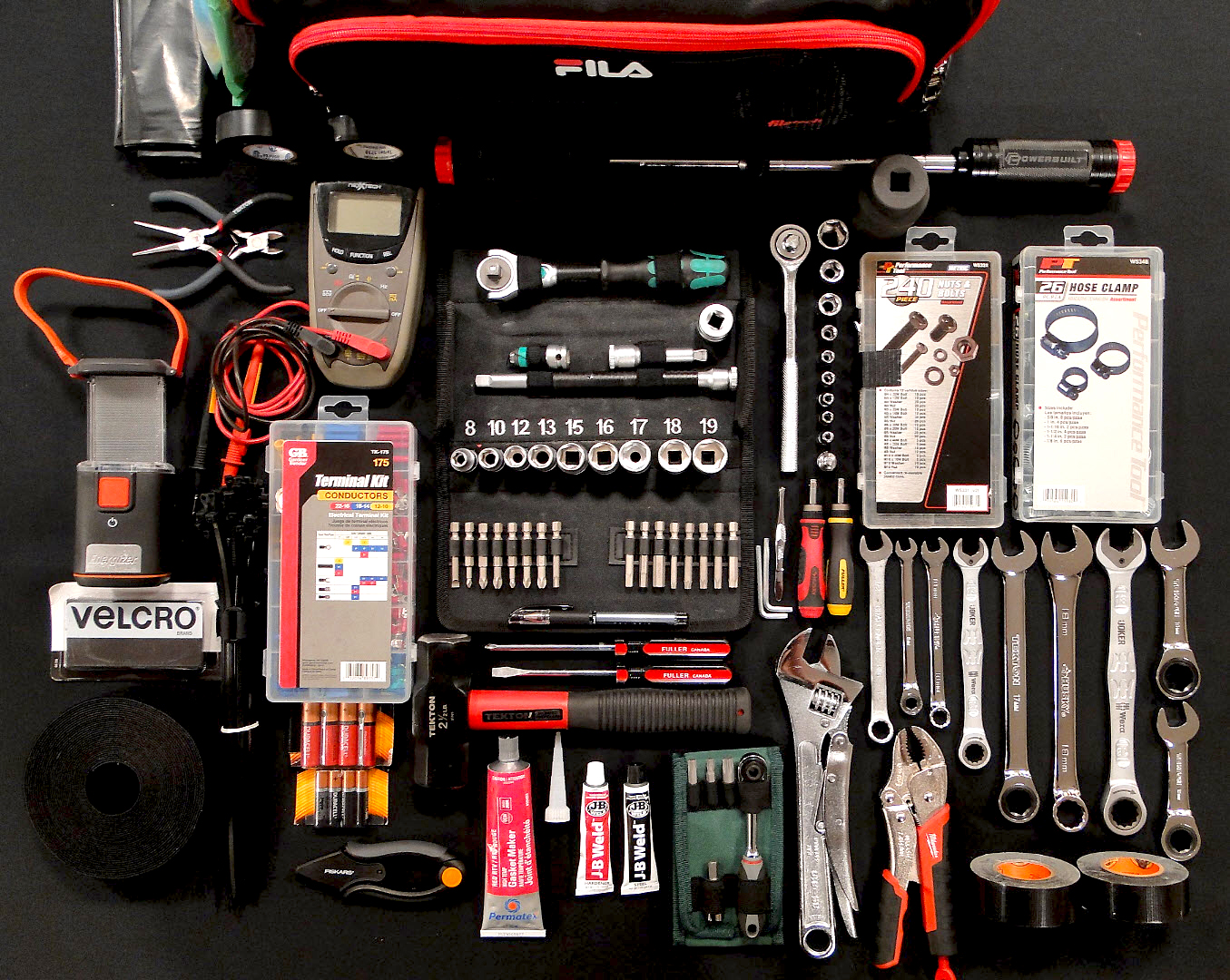
Total Weight : 24.2 lbs.
| Heavy Duty Lug Wrench | 240 Metric Nuts & Bolts |
| Socket Adapter & Converter Set | 26 Hose Clamps |
| Metric Ratchet Set 3/8-Inch Drive 29 Pieces | 2x Gorilla Tapes To-Go |
| Extra Ratchet 3/8-Inch Drive + Extra Sockets | Multimeter & Voltage Tester for checking car electrics. |
| 36mm Nut Socket | Electrical Terminal Kit |
| 9 Combination Wrenches | Needle Nose Pliers |
| 10'' Locking Adjustable Wrench | Wire Cutting Pliers/Nippers |
| 10" Curve Jaw Locking Plier | 2x Electrical Tapes (Heat & Weather Resistant) |
| Phillips Screwdriver | Zip Tie Assortment |
| Standard Screwdriver (Flat) | Velcro Peel and Stick |
| 2x Precision Torx Screwdriver (8-in-1) Ratchet | Velcro Self-Gripping Strap (30 Feet) |
| 2x Hex L-Wrenches 7/32 1/4 | 2x Contractor Garbage Bags |
| Tweezers | Hand Wipes Fragrance-Free |
| Compact Scissors | 4 AA Batteries |
| Jeep Torx Set | 4 AAA Batteries |
| Ballpoint Pen (Waterproof) | Gasket Silicone Sealant (with the Nozzle) |
| LED Pop-Up Lantern Energizer | JB Weld Compound-Epoxy |
This is exactly what I keep in my Jeep at all time when I’m wandering in remote areas. Hardcore off-road adventurers usually carry more tools, but my main goals were to save on weight, save on space, and save money. Many Jeepers keep buying miscellaneous tools for things they have broken on the trail in the past and for problems they didn’t have the right tool for at the time. It’s a chain reaction: more weight, more space, more storage, more disorganization, and more money spent. There’s no end to it. I’m only an amateur mechanic with no advanced or magical skills, but I refuse to go that route. I deliberately made the choice to rely on a minimalist but creative emergency toolkit for my Jeep JK 2015 that weighs only 24.2 lbs. (including the bag and the organizers).
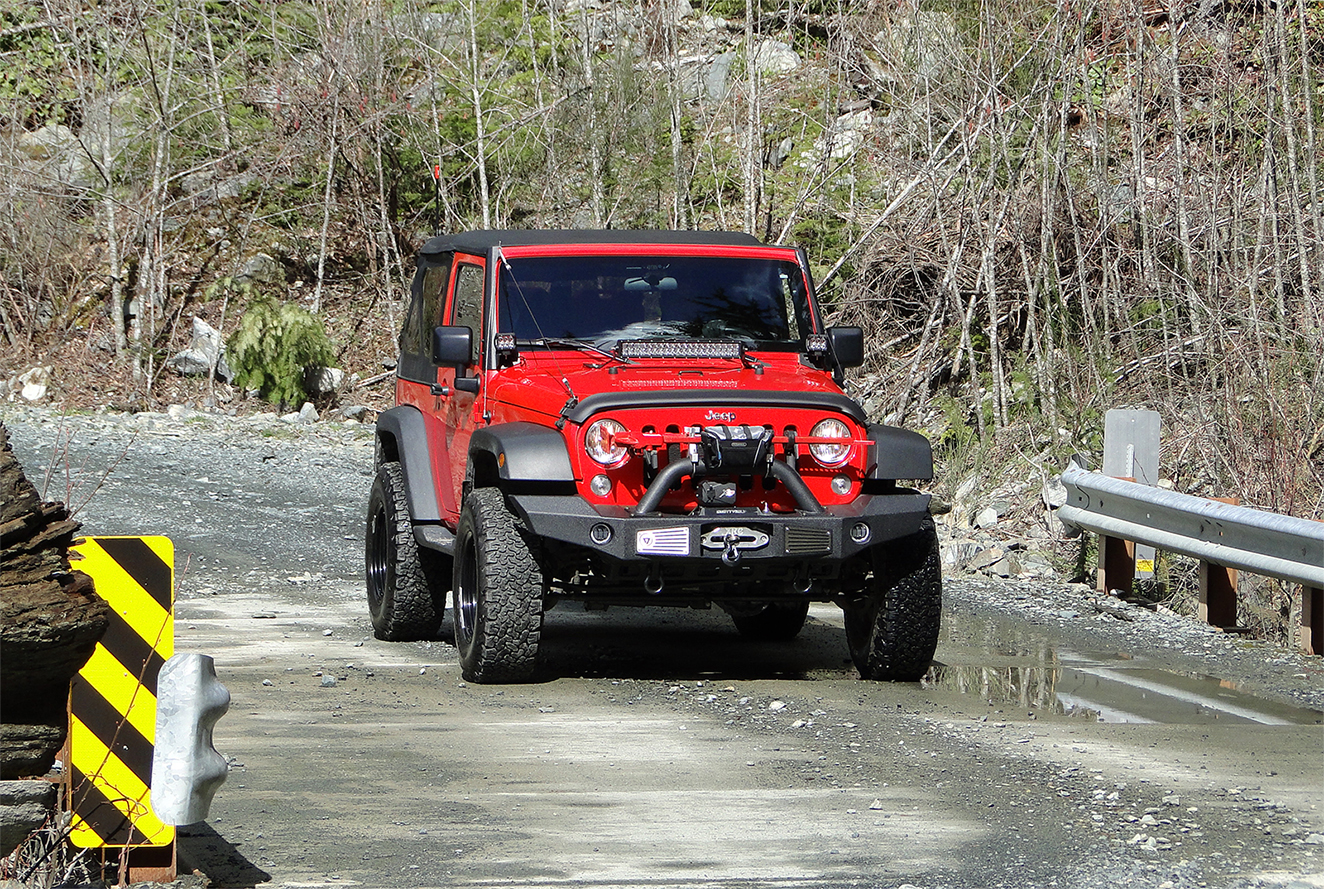

Mechanical and Electrical Tools at a Reasonable Cost : 34 Items to Gather
1. Powerbuilt Wheel Lug Wrench Spin wheel lug nuts fast or use it as a breaker bar for mods or drivetrain repairs. Includes: 3-inch Extension + SAE Sockets 3/4 + 7/8 + 13/16 + 11/16 Sizes 17mm (11/16) 19mm (3/4) 21mm (13/16) and 22mm (7/8) You certainly need these four SAE Sockets if you have an aftermarket bumper, a tire carrier, etc. because most are Made in USA. In addition, these SAE Sockets are Universal (17mm + 19mm + 21mm + 22mm).
|
2. Adapter & Reducer Set Ratchet Spin wheel lug nuts fast or use it as a breaker bar for mods or drivetrain repairs. Includes: 1/2 to 3/8, 3/8 to 1/4, 3/8 to 1/2, 1/4 to 3/8 There’s still enough room in the side handles of the Powerbuilt Wheel Lug Wrench to store this set with the other four sockets.
|
3. Wera Metric Rachet Set (3/8 Drive or 1/2 Drive) I received this Wera set as a gift and this is the only expensive product in my trail tool bag. I recommend the Wera but there are many cheaper sets available. Must contain :9 Sockets - Sizes: 8mm 10mm 12mm 13mm 15mm 16mm 17mm 18mm 19mm 2 Extension Bars: 200mm + 76mm Screwdriver Bit Adaptor Screwdriver Bits: PH1/2/3, PZ1/2, T15/20/25/27/30/40, Hex: 3/4/5/6/8mm
|
|
|
4. Extra Metric Sockets (3/8 Drive) Socket Sizes: 5mm 21mm 24mm + a second 18mm socket if I want to use two 18mm sockets at the same time. |
|
|
5. Cheap Spare Ratchet (3/8 Drive) A 2nd ratchet just in case you lose the other one or if you want to use both at the same time. Trust me, it could be a life saver. I wouldn't pay more than $20 for that second ratchet. |
|
|
6. 36mm Axle Nut Socket Snapping an axle shaft, breaking a u-joint, or facing another axle problem is a common repair on the trail. You could be stranded for good if you don’t have this 36mm socket. Never hit the trail without it. NE-VER. The hub nut size is actually 35mm, but a 35mm socket is generally too tight to fit easily (because of rust or dirt) and will force you to use a hammer. |
|
|
7. 9 Ratchet Combination Wrenches Metric 2x 18mm (most common) + 19mm + 17mm + 15mm + 13mm + 10mm + 8mm + 1/2
|
|
|
8. 8-Inch Locking Adjustable Wrench Has to be 10inches long. This is my favorite tool, and I use it all the time. I couldn’t live without it.
|
|
|
9. 10-Inch Curve Jaw Locking Plier Sometimes, you just need a third hand to hold something in place.
|
|
|
10. Flat and Phillips Screwdriver Set You should go with nonslip rubber grips. A pair of Tekton #2739 is easy to find for $10 a pair. |
|
|
11. Precision Torx Screwdriver Set 8-in-1 Must include the 8 following bits: T4, T5, T6, T7, T8, T9, T10, and T15. I carry two precision screwdrivers because it’s easy to lose bits in the bush. It’s an affordable product too ($10 or less).
|
|
|
12. Hex L-Wrenches Set The sizes 7/32 and 1/4 are probably the most common if you want to carry only two, but I recommend the whole set. They may be required for various tasks, like removing the transmission drain plug of your Wrangler JK.
|
|
|
13. Tweezers Yes, tweezers. Very helpful to grab some wire that’s hard to access or to retrieve a screw, a nut, or a bolt in the engine bay that your fingers can’t reach.
|
|
|
14. Scissors (Kitchen Shears) Very sharp scissors. This product is very small and makes clean cuts. Does not corrode. Includes a sleeve for protection when storing. Made in Finland by Fiskars. |
|
|
15. Wrangler JK Torx Set You are supposed to already have one set (to remove the doors, the soft-top frame, etc.) when you buy a Jeep. If you this set is nowhere to be found, you need to get a new one before you even consider your first solo expedition. |
|
|
16. Ballpoint Pen (Waterproof) Don’t take for granted that you always have a pen in the glove box. A pen is necessary to make wiring diagrams, track dimensions, mark where to cut, etc. A waterproof pen like the Uni-Ball Signo 0.7 is a good pick for the trail.
|
|
|
17. Pop-Up Lantern LED Energizer 360-degree lighting for trail repairs at night or inside the vehicle. Compact, lightweight, powerful, and shock- and rain-resistant. Use the hand to hang it just about anywhere. Dimmable. Only 4inches tall when collapsed. 4xAA batteries last over 50 hours. |
|
|
18. Nuts and Bolts Assortment (240-Piece) Common sizes of bolts, nuts and washers : M4 M5 M6 M8 M10 Lightweight and well organized. Cheap (<$25) assortment from Performance Tool. Perfect for temporary bush repairs. |
|
|
19. Hose Clamps (26-Piece) Hose clamp assortment of common sizes. 5/8 + 7/8 + 1 1/4 + 1 1/2 + 1 1/16 + 1'' Cheap (<$20) assortment from Performance Tool. |
|
|
20. Gorilla Tape To-Go (2 Rolls) Extremely strong and good heat resistance. 1in x 30ft and Double Thick Adhesive Sticks to just about anything, including aluminum, steel, dirt, plastic, and nylon. Expensive (>$15) for a pair you can't go without it.
|
|
|
21. Multimeter and Voltage Tester If you are new to it, it might look like a scary and expensive electronic device. But it’s not. You need it to test your battery, wires, lights, and other devices. It’s really easy to use. Just read the manual on the trail and you will figure out how it works after 5 minutes. It will save you a lot of time. Don’t forget to buy a 9V Battery for it. Affordable (<25$) and reliable. |
|
|
22. Terminal Kit Connectors You need solderless terminals, male/female disconnects, and butt splices. Without this kit, you won’t be able to connect wires in an efficient manner. Will save you time (hours) and unnecessary hassle. Driving off-road is hard on terminals and conductors. It’s impossible to drive long distances in the wilderness and never have to deal with a disconnected light, CB radio, switch, or worse. Affordable (<20$) and very light. |
|
|
23. Needle Nose Pliers (4 ½ Inch) Choose something very small thatoffers a high level of precision. Using your finger to connect electrical wires is not going to work in cramped spaces. Affordable (<$20) and very light.
|
|
|
24. Diagonal Cutting Pliers (4 ½ Inch) Use it not only to snip wires but also to tie wraps and plastic parts. Once again, you need a high level of precision. Made of hardened carbon steel that will never corrode on the trail. Affordable (<12$) and very light. |
|
|
25. Tesa Electrical Tape (2x) Stay away from so-called heat-resistant pro-grade electrical tape. Driving off-road maintains high temperatures in the engine bay for long periods of time. I only trust Tesa tapes because they are made to be used in the engine compartment. Temperature resistance = 150°C Price (<$25) for a pair but if you don’t waste it, you will have enough tape to last for years on the trail. |
|
|
26. Zip Ties (150-Piece x 12in) Don’t waste your time with cheap cable ties. They will break atthe worst moment. This product from Performance Tool has a tensile strength of 50 lbs. It’s extremely reliable in the worst off-road conditions (from -30°C to +30 °C). It has saved my day numerous times. Every lone Jeeper should carry it. Use two zip ties for maximum strength. Price (<30$) for 100. You won't waste your money. |
|
|
27. Velcro Peel and Stick (4 in x 1 1/2 in) #90812 Mount, store, hang, attach… Infinite possibilities. Strong adhesive for extreme outdoor use. Totally water resistant. Industrial strength. Price (<6$) for 10. |
|
|
28. Velcro One-Wrap Roll (30ft x 1in) #91372 Self-gripping. Cut to desired length. Strength of 100 lbs. Price (<$30) for 30ft. |
|
|
29. Contractor Garbage Bags (2x) Use it as a tarp to not sit or lie directly on the ground or to protect components from the rain. Very tough. Great to carry your clothes, sheets, sleeping bag, and pillow cover to the laundromat. The box contains 32 bags but only carry 2 or 3 bags on the trail. Why? Because the box is 10 lbs (too heavy). Price (<$30) |
|
|
30. Hand Wipes (Fragrance Free) Cleans greasy hands quickly. And we don’t want to waste our precious water to wash hands. Non-allergenic, 100% natural ingredients, and no fragrance (so it won’t be a bear attractant). Price (<$25) for 32 bags (but I only carry 2 or 3 bags on the trail). |
|
|
31. Energizer Max AA Batteries (4x) For the LED lantern lamp. Holds power for up to 10 years. Price (<$10) for 4
|
|
|
32. AAA Batteries (4x) The need for AAA batteries is everywhere and happens all the time (head lamp, mini portable radio, SWR meter, small electronic devices, etc.). I wouldn’t take the risk of not having at least four extra AAA batteries in my emergency trail tool bag. Holds power for up to 10 years. Price (<$10) for 4 |
|
|
33. Permatex Gasket Sealant Forms a barrier that will stop fluid leaks quickly. A minor transmission, oil pan, or differential leak could transform your journey into a truenightmare. Even the most skilled off-road drivers can’t prevent the drivetrain from receiving some severe hits on rocky and forsaken backcountry roads. For that reason, minor leaks are extremely common and can get you stranded for good. A minor leak is the silliest way to end the journey of a lifetime. Price (<$20) |
|
|
34. J-B Weld Compound Epoxy #8265S To glue together pieces of metal, vinyl, plastic, etc. You can use it to fix just about any kind of crack or to improvise a temporary repair like reconnecting a broken tie rod end. This glue is actually so strong that it’s drillable. Price (<$20) |
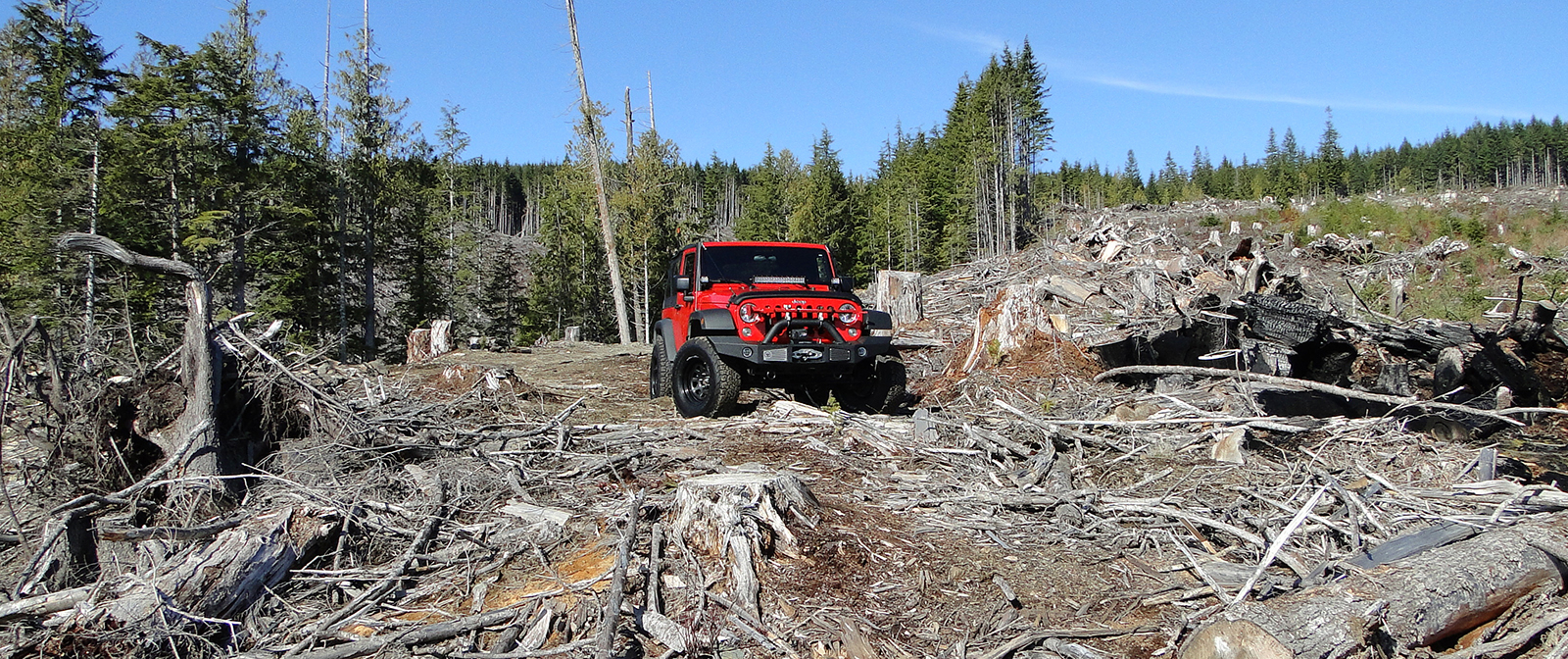
I’m used to encountering reckless and foolhardy off-road adventurers who have poor mechanical knowledge but make the decision to hit the trail alone and travel long distances in the wilderness. They eventually get stranded because of a minor electrical or mechanical failure. Many finally find a solution all by themselves while others have to call/wait for help (sometimes for days) or to give up and walk tens of kilometers. Having the right tools helps performing miracles for sure, but it’s also a question of attitude and organization.
1. Get out of the way: Your main priority should be to move the Jeep beside the trail. Even if the trail or the road appears abandoned, it’s a bad idea to take it for granted. Some logging truck could down the slope in the middle of the night and just run over your Jeep. So, use the winch, the jack, the come-along, or whatever else—but move.
2. Have a positive attitude: Stay cool. You have water, food, shelter, books, movies on the tablet... You wanted an adventure, you got one. Allow yourself at least three days before even considering giving up. A lot of repairs are actually easy, and a Jeep is the perfect vehicle to limp its way back to civilization. Or some nice guys might show up and help. Or else. Getting stranded in the remote wilderness is a misfortune that 100% of seasoned off-roaders experience at some point. It’s not the end of the world.
3. Don’t let your mind play tricks on you: There’s no bear, no cougar, and no mean porcupine hidden behind foliage,waiting for the right moment to strike. To my knowledge, nobody has ever been attacked by some predator because he was replacing a front-axle U-joint. Unless you got stuck in the middle of some grizzly maze, you certainly have not much to worry about.
4. Organize your tools: Deploy your tool kit right off the bat and make sure you won’t lose the only 18mm socket you have or anything else in the mud.
5. Don’t get hurt: It’s easy to hurt your hands or your back if you’re not careful. You need to stay fully operational. Personally, I even allow myself to take a nap (if I feel I’m really tired) before I start repairing something. You can’t think straight if you are too tired, and you could hurt yourself or break some vital parts. You are even more important than your Jeep and need to take care of yourself first.
6. Don’t get wet: If it’s raining like crazy outside, take shelter and wait. Wearing damp clothing is not good for your health (hypothermia, fungus, asthma, etc.) and not good for your brain either. You can’t expect to be creative and fully concentrated if you are freezing and covered with mud.
7. Have a budget ready ($2,500–$4,000): I warmly recommend you to not hit the trail at all if you can’t afford to lose several thousand dollars. Otherwise, you are going to start worrying about your monthly payments, the price of replacements parts, the prohibitive cost of a tow truck in the wilderness, your boss, your paycheck, your clients, or who knows what else. If you face a major electrical or mechanical failure, there will be financial consequences for sure. It’s a constant possibility.
8. Hide your Jeep if you have to leave: If you are 100% sure that there’s no other solution but to walk, it’s important to make your Jeep as invisible as possible. You could be away for days, and you don’t want losers to find your Jeep easily and loot it.
![]()
| More stuff for your Wrangler JK |
|---|
|
← Previous Step - Current Step - Next Step →
|
|---|
